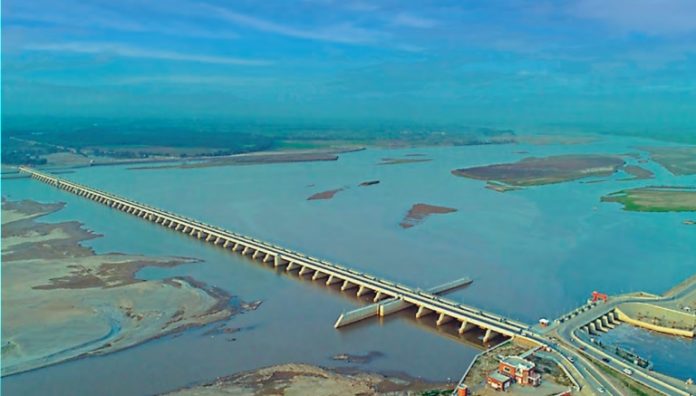ISLAMABAD: The New Khanki Barrage has increased agricultural output and income of over half a million farming families in addition to providing far-reaching social and economic benefits, particularly for women and girls, through new health, education, recreation, and other community infrastructure, according to a report by the Asian Development Bank (ADB).
The New Khanki Barrage was replaced the Khanki Headworks, one of the oldest barrages in Pakistan as the old barrage was no longer able to safely regulate the river during strong floods, thus risking serious loss of life and property in the event of a major flood. The replacement is among the latest government efforts to implement its long-term investment plan of rehabilitating and improving Punjab’s irrigation infrastructure.
The report states that New Khanki Barrage has achieved its objectives of providing increased and sustained agricultural production and income, and increased resilience against damage from future natural disasters.
The impact of improved agriculture production and farm income in the Lower Chenab Canal command area was measured by two target indicators. The first was a 10 per cent increase in cropping intensity over the 2011 baseline by 2020. The overall irrigated area under crops growing in the project districts increased from 3.32 million ha in 2011 to 3.56 million ha by 2016, a gain of more than 7pc, and 10pc by 2020.
The second target was a 10pc increase in average farm income of 25,000 farming families in the same period. The income of an average holding had already increased well beyond this target with a 15.4pc gain by 2016. About 568,000 farming families benefited directly from the reliable irrigation water supply generated by the project.
The large population in the vicinity of the new barrage, particularly women and girls, gained widespread social and economic benefits in education, health care, transport, recreation, and income generation. The project built a public road bridge, a girls’ high school, a health-care facility, and a large recreation park in Khanki Village.
Furthermore, the new 1.34 km bridge over the barrage greatly increased connectivity between residents and businesses by decreasing travel across the river from the previous distance of 30 km, to just 1.34 km.
Consequently, the profitability of existing enterprises increased and many new business opportunities opened up.
Moreover, women have benefited from the improved business environment through extra household income and reduced expenses while students have saved time and fare when traveling to schools, colleges, and post-secondary educational institutions.
























